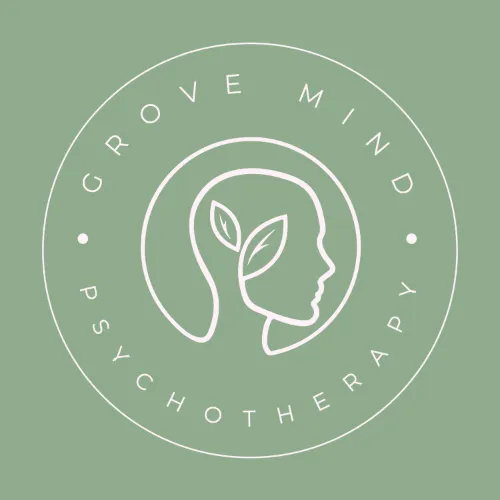BLOG
Acceptance & Commitment Therapy for Anxiety

How does ACT help with worry?
“We cannot choose NOT to think our thoughts”
Looking for a way to manage worry & anxiety?
Acceptance & Commitment Therapy (ACT) might be for you.
Evidence shows that ACT is effective for treating anxiety & worry.

So, what is ACT?
ACT is an action-oriented psychotherapy. It is all about creating psychological flexibility so that we can respond to thoughts and feelings in ways that are in line with our values. It is about accepting thoughts and feelings and making a commitment to living a rich, full and meaningful life.
What is worry?
Worry is repetitive negative thinking. You might describe yourself as an overthinker or overanalyse everything.
When we worry a lot we tend to be fearful of the unknown. OR we can say that we are unable to tolerate uncertainty. SO, we worry to try and find solutions, or to prepare for the worst. Which helps us to avoid feeling uncertain and anxious (in the very short term).
Unfortunately in the long term it means that we become fearful of uncertainty and anxiety because we are trying to make it go away. This means that we are more likely to worry in order to try and avoid feeling anxious or uncertain.
When we are unable to tolerate uncertainty we also do things to try and make life more certain. We do certainty seeking behaviours such as:
Double checking
Reassurance seeking
Being unable to delegate
When we do these behaviours it usually makes us feel better in the short term, however in the long term we do not get to learn how to feel anxious or uncertain. We do not get to learn what happens if we don’t do these behaviours and we become reliant upon them.
Of course life is uncertain. When we seek certainty we are fighting a losing battle, which is exhausting and frustrating. We cannot make life certain, BUT we can learn how to tolerate uncertainty.
With that said, here are 6 ways that ACT can help with worry!👊

In ACT we focus on being present, opening up and doing what matters in order to create psychological flexibility.
6 ways ACT helps with worry
Be Present
Connecting with the present moment
We focus on being in the present moment- both the good and the bad. We notice what is showing up in our mind and bodies along with what we can notice through our five senses. Simply put, being present means paying attention to what's going on around you right now, rather than worrying about the past or future. This can be especially helpful for people struggling with anxiety and worry, as these issues often involve ruminating on past events or fretting about what might happen in the future. By learning to be fully present and focused on the present moment, you can often reduce anxiety and feel more grounded and centered. Practicing mindfulness and other techniques can help you cultivate a greater sense of presence in your daily life.
You are not your thoughts
This concept involves learning to view yourself as something separate from your thoughts, emotions, and experiences. In other words, you are not defined by the anxiety or worry you may experience. Instead, you are the observer of these experiences. This can be incredibly liberating for people struggling with anxiety and worry, as they can learn to observe their thoughts and emotions without being consumed by them. Practicing self-awareness and learning to separate yourself from your thoughts and feelings can help you gain a greater sense of perspective and reduce the power that anxiety and worry have over your life.
Open Up
Defusion
Defusion is the process of separating yourself from your thoughts and recognising them as simply thoughts, not necessarily truths. This can be particularly helpful for people who experience repetitive or intrusive thoughts that contribute to anxiety and worry. By recognising that these thoughts are just thoughts, you can learn to distance yourself from them and reduce their impact on your emotions and behaviour. Techniques like mindfulness and visualization can be useful for practicing Defusion and learning to observe your thoughts from a more objective perspective. By learning to defuse rather than fuse with your thoughts, you can gain greater freedom from anxiety and worry and improve your overall well-being. Check out this blog for more on Defusion.
Acceptance
Acceptance is about acknowledging and allowing uncomfortable thoughts, feelings, and sensations without trying to avoid or control them. This may sound counterintuitive, but by accepting what we cannot change, we can learn to live more fully in the present moment rather than getting caught up in worries about the past or future. Acceptance can be challenging, especially if it goes against our natural instincts to avoid discomfort, but it is an important first step towards moving towards a more fulfilling life. ACT therapists use a variety of techniques, such as mindfulness, to help clients cultivate non-judgmental awareness and acceptance of their experiences. By practicing acceptance, we can learn to coexist with our worries and fears, rather than letting them control us.
Do What Matters
Commitment
We focus on the things we can change rather than the thing we can’t. We commit to living our lives despite the presence of anxiety and worry. We focus on our heart's deepest desires and commit to taking action to create a life that matters to us.
As part of this commitment we also look at reducing our certainty seeking behaviours whilst putting our time and energy into more values based activities. This means we can find out what happens when we don’t do those behaviours. AND we get to learn that we can cope. This helps us to break out of the vicious cycles we have been stuck in.
It can be easy to get stuck in patterns of avoidance or rumination when we're anxious, but committed action encourages us to take small, concrete steps towards the life we want to live. This could be as simple as setting a goal to call a friend or take a walk outside, or it could involve bigger changes like pursuing a new hobby or career path. By working towards our values and taking action despite our anxiety, we build a sense of purpose and meaning in our lives. ACT therapists help clients identify their values and develop manageable action plans that support their values. By taking small steps every day, we can move towards a life that feels more fulfilling and rewarding, even if anxiety is still present.
Values
Values are the things that matter most to us and give our lives meaning. They are not goals, but rather broad aspects of life that we want to prioritise in our actions and decisions. For example, some common values include connection, creativity, growth, and spirituality. By clarifying our values and aligning our actions with them, we can cultivate a sense of purpose and fulfilment in our lives. This can be particularly helpful for people with anxiety, as it can be easy to get caught up in worries and lose sight of what matters most. ACT therapists use a variety of techniques to help clients clarify their values and identify small steps they can take to align their actions with their values. By focusing on what matters most, we can learn to live more fully in the present moment and experience greater satisfaction and well-being.
Do you want to try ACT? Apply here.
REFERENCES
Harris, R. (2008). The Happiness Trap. Robinson.
Hayes, S. C., Strosahl, K., & Wilson, K. G. (1999). Acceptance and commitment therapy: An experiential approach to behavior change. Guilford Press.
Hayes, S. C., & Smith, S. (2005). Get out of your mind and your life – The new acceptance and commitment therapy. New Harbinger.
Hayes, S. C. (2021, August). State of the ACT evidence. Association for Contextual and Behavioral Science. Retrieved November 22, 2021, from https://contextualscience.org/state_of_the_act_evidence
Smith, J. (2019, October 3). How does anxiety spiral into a panic attack? Dr Julie Smith. Retrieved on November 28, 2021 from https://doctorjuliesmith.com/how-does-anxiety-spiral-into-a-panic-attack/
Westrup, D., & Wright, M. J. (2017a). Learning ACT for group treatment: An acceptance and commitment therapy skills training manual for therapists. New Harbinger.
Westrup, D. & Wright, M. J. (2017b). Learning ACT for group treatment: Supplemental exercises. New Harbinger.
© Copyright 2023 Grove Mind Psychotherapy - Privacy Policy - Terms & Conditions


